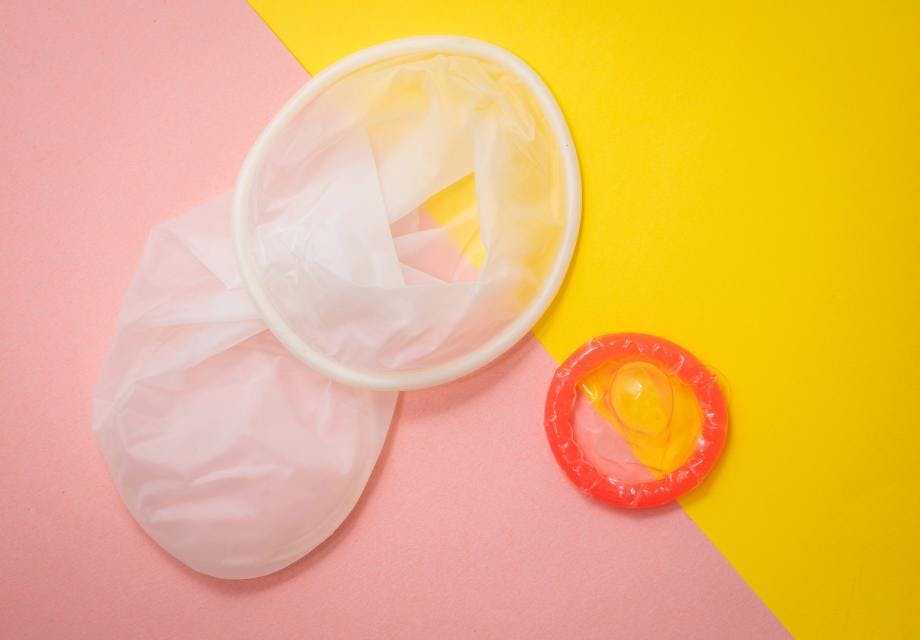What if I don’t like condoms?
Hester Phillips
09 June 2023
Condoms have an unsexy reputation. But using them not only gives you a safer sex life – it can also add some spice!
There are many options and things to think about when using condoms. Here’s all you need to know.
Can condoms be sexy?
Yes! With a bit of imagination condoms can be a fun part of foreplay.
Some people find it a turn on to ask their partner to put the condom on their penis. Other people like taking charge and telling their partner how they’re putting the condom on. Some people like to self-pleasure while their partner puts the condom on – this can be fun for both of you.
Worry is one of the biggest mood killers. But if you’re using condoms you can relax because you know you’ll be keeping you and your partner safe.
Why should I use a condom?
Because they are the only thing on this planet that will do all three of these things:
-
prevent pregnancy
-
stop you from getting or passing on HIV
-
prevent some sexually transmitted infections (STIs).
What types of condoms are there?
The most common type of condom goes on the penis. This is an external condom.
You can also get condoms that go inside the vagina or anus. These are internal condoms.
Condoms can be textured, which can add to the pleasure for both of you. And there are flavoured condoms too, which can make oral sex more fun.
There are different sizes, and getting the right fit is important. Ones that are too big might come off, and ones that are too small can feel uncomfortable and they might burst. Smaller condoms are often called things like ‘snug’ or ‘close fit’. Larger ones are often called ‘XL’.
How effective are condoms?
If you use them correctly, external condoms are 98% effective at preventing pregnancy.
When it comes to preventing HIV, condoms are around 85% effective. (Although some studies that only looked at anal sex between men found that condoms are between 70-92% effective at preventing HIV.)
Condoms will protect you from chlamydia, gonorrhoea and hepatitis B. But they are less effective at protecting you from STIs that spread through skin-to-skin contact, like herpes, genital warts, syphilis and mpox. That’s why it’s important to test regularly for STIs so you can get treatment if you have one and avoid passing it on.
Getting or passing on HIV or STIs through oral sex is much less likely than it is for anal or vaginal sex. But it’s still a risk. So using condoms or dental dams is a good idea.
What can go wrong with condoms?
Condoms can break or slip off. Here are some mistakes that might make that happen:
-
using them inside out
-
using an oil-based lubricant – this can damage and condom and it might break
-
not unrolling them fully to the base of the penis – this means it’s more likely to come off
-
using two condoms at once – doubling up (whether it’s two external condoms or one external and one internal condom) creates friction which can cause condoms to break
-
using out-of-date condoms – always check the expiry date.
You can avoid these mistakes by knowing how to use condoms correctly. Find out how on our external condoms and internal condoms pages. It’s easy once you know how!
What are the benefits of using condoms?
Condoms are easy to use and easy to get hold of. You can get them for free from sexual health clinics and doctors. Or you can buy them from shops and pharmacies.
They don’t have any side effects. And you only need to use them when you have sex. That’s different from things like the contraceptive pill or injection or PrEP, which you have to use regularly for them to work.
Get our news and blogs by email
Keep up-to-date with all our latest news stories and blogs by signing up to the Be in the KNOW news digest.
